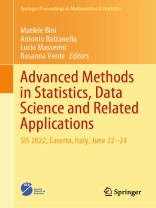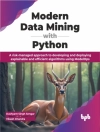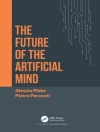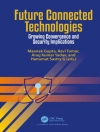This book contains a selection of the improved contributions submitted by participants at the conference of the Italian Statistical Society – SIS 2022 held in Caserta 22-24 June 2022. The scientific community of Italian statistics, which gathers around the SIS, is paying particular attention to the development of statistical techniques increasingly oriented toward the processing of large data, mainly, of complex data. The main goal is to provide the analysis of the data and the interpretability of the obtained results, with a view to decision support and the reliability of the data outcomes. The aim of this volume is to show some of the most relevant contributions of statistical and data analysis methods in preserving the quality of the information to be processed, especially when it comes from different, often non-official sources; as well as in the extraction of knowledge from complex data (textual, network, unstructured and multivalue) and in the explicability of results. Data Science today represents a broad domain of knowledge development from data, where statistical and data analysis methods can make an important contribution in the different domains where data management and processing are required. This volume is addressed to researchers but also to Ph.D. and MSc students in the field of Statistics and Data Science to acquaint them with some of the most recent developments towards which statistical research is orienting, in prevalence in Italy.
Inhoudsopgave
C. Marini, and V. Nicolardi, Administrative database and official statistics: an IT and Statistical procedure.- F. Mariani, M. Ciommi, M. C. Recchioni, Giuseppe Ricciardo Lamonica and Francesco Maria Chelli, Working with Non-Compensatory Composite Indicators: A Case Study Based on SDG for Mediterranean Countries.- D. Bondonio and P. Chirico, Intertemporal statistical matching for causal inference in the context of multivariate time-series data.- C. Rosanna, G. M. Gabriella and Z. Emma, Scaling UX-AI products: CFA & PLS-SEM comparison.- L. Pagani, M. C. Zanarotti and A. Habus, The construction of a Heat Vulnerability Index by means of the Composite Indicator approach: a case study for Friuli Venezia Giulia Region, Italy.- C. Pangallo, Oliviero Casacchia e Corrado Polli, The manual, communicative and quantitative abilities of native and foreign workers according to their level of education in Italy.- E. Dzuverovic and E. Otranto, Nonlinear HAR Models and Nonlinear Least Squares: Asymptotic Properties.- P. Quatto and E. Ripamonti, Measuring strength of randomized clinical trials.- A. Bianchino, Armando d’Aniello, Daniela Fusco, Improving administrative data quality on tourism using Big Data.- R. Fontana and F. Rapallo, Robust designs against data loss: A general approach.- S. D. Tomarchio, A. Punzo and A. Maruotti, Matrix-variate hidden Markov models: an application to employment data.- F. Bitonti, Integrating structuralism and diffusionism to explain the new Italian emigration.- F. Bitonti1, A. Mazza, Spatial explorative analysis of thyroid cancer in Sicilian volcanic areas.- I. Sciascia, Adjusted calibration estimators for sparse spatial data.- N. Trendafilov and M. Gallo and V. Simonacci and V. Todorov, Discrimination via principal components.- G. Greca, G. Cinquegrana and G. Fosco, A regional analysis of the efficiency by energy producers in Italy.- M. Scioni and P. Annoni, An Alternative Aggregation Function for the UNDP Human Development Index.- F. Attili and M. Costa, Decomposing inequality after asymmetric shocks: an analysis of Italian household consumption.- D. Fusco, M. Antonietta Liguori, V. Moretti, F. G. Truglia, Spatial statistics analysis using microdata: an application agricultural sector.- I. Primerano, G. Giordano, M. Prosperina Vitale, Exploring factors affecting the evaluation of online learning services. Evidence from a social science bachelor’s degree.- M. Zannella, A. De Rose, E. Aloè, M. Corsi, Paid and Unpaid Work in Pandemic Times. A Study on the Division of Household Labour and the Subjective Well-being of Working Mothers in Italy.- G. Bove, Measures of interrater agreement for quantitative scales based on the standard deviation.- D. Giuliani, M. Michela Dickson, F. Santi, G. Espa, An empirical tool to classify industries by regional concentration and spatial polarization.- B. Guindani, D. Ardagna and A. Guglielmi, Bayesian optimization for cloud resource management through machine learning.
Over de auteur
Matilde Bini, Ph.D. in Applied Statistics from the University of Florence (IT), is a full professor of Economic Statistics, coordinator of the Master’s degree program in Management of Digital Transition, and Director of the Ph D program in Person, Well-being, and Innovation at the European University of Rome (IT). She has been a member and scientific coordinator of National Research Projects and member of COST Action funded by EU. She was a visiting student at the Department of Statistics at the University of Florida (USA), a visiting professor at the School for Advanced Studies of Institutions, Markets, Technologies of Lucca (IT), and at the Department of Estadística, Econometría, Investigación operativa, Organización de Empresas y Economía Aplicada at the University of Córdoba (ES). She is a member of the Italian Statistical Society (ISS) and has been a member of the Executive Committee of this Society, she is a member of the Executive Committee and President-elect (for the years 2025-2027) of the International Society for Business and Industrial Statistics (ISBIS), a member of the International Statistical Institute (ISI), the American Statistical Association (ASA), the Royal Statistical Society (RSS), the European Network for Business and Industrial Statistics (ENBIS), the CLAssification and Data Analysis Group (CLADAG), and the Association for Applied Statistics (ASA). She is also a member of the Group for the Enhancement of Public Statistics (VSP), the Group for Statistics in Evaluation and Quality in Services (SVQS), and the Future SIS Group of the Italian Statistical Society. She has been an Associate Editor of the Statistical Methods and Applications Journal and the Italian Journal of Applied Statistics and has served as Guest Editor for several special issues of scientific journals and volumes. She is the coauthor of more than 90 papers published in scientific journals and in proceedings of international conferences.
Antonio Balzanella is an Associate Professor of Statistics in the Department of Mathematics and Physics at the University of Campania ‘Luigi Vanvitelli’ (IT). He obtained his Ph.D. in Statistics from the University of Naples Federico II. He has been instructing courses in Statistics, Data Mining, and Time Series for BSc and MSc degree programs in Statistics and Data Science. His research is centered on data stream mining, clustering, functional data analysis, spatial data analysis, and distributional data analysis. He is a member of the Italian Statistical Society (ISS), the International Society for Business and Industrial Statistics (ISBIS), the Classification and Data Analysis Group (CLADAG), the Statistics and Data Science Group, and the Italian Environmetricians Group (GRASPA).
Lucio Masserini is Associate Professor of Economic Statistics at the Department of Economics and Management at the University of Pisa. He holds a Ph D in Applied Statistics at the University of Florence. His research interests include evaluation of educational processes, analysis of the labor market, evaluation of public policies, market research and evaluation of the quality of services, among others. Regarding methods, he works on structural equation models, mixture models and latent growth models, longitudinal and multilevel data analysis, multivariate analysis and statistical, econometric techniques for the policy evaluation and causal inference. He has been reviewer of various international journals and is member of the research group “Statistics for Evaluation and Quality in Services (SQVS)” and “DIAS – Dati, Indicatori e Analisi per la Sostenibilità” of the Italian Statistical Society. He is an Associate Editor of the Statistical Methods and Applications.
Rosanna Verde is full professor of Statistics at the Department of Mathematics and Physics of the University of the Campania “Luigi Vanvitelli”. She held a degree in Economics and a Ph D in Statistics at the University of Naples Federico II. She had a long collaborative experience at INRIA Rocquencourt related to two European Projects on Symbolic Data Analysis for Official Statistics. Actually, she is coordinator of Bachelor’s degree in Data Analytics and of the Master degree in Data Science, and the responsible for the EMOS European Master for Official Statistics programme. She is a member of the Doctorate in Social and Statistics Sciences of the University of Naples. She is member of several international statistical associations and the coordinator of the SIS – Italian Group Statistics and Data Science. She was expert evaluator of European Programmes. She was member of the Scientific Committee IDNEUF of the AUF Agence Universitaire de la Francophonie. She has been scientific coordinator of National and Regional Projects. She participated to IST R&D European projects, ALFA project with Latin American countries, COST actions, and a Joint project with the Beihang University (AABU), funded by the National Natural Science Foundation of China. She has been guest researcher and visiting professor in several Universities and Research Centres. Her main fields of research are clustering and classification, symbolic data analysis, data stream, distributional and functional data analysis. She is author of more than 150 papers published in Scientific Journals and in proceedings of international conferences.












